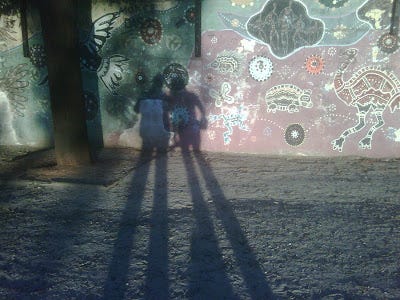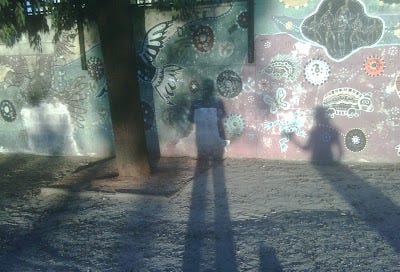*
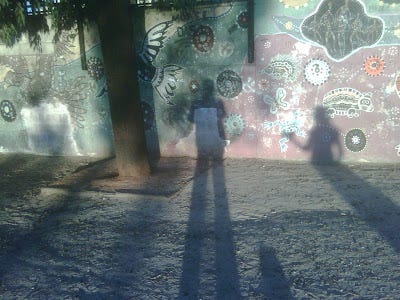
We went there for everything we needed. we went there when thirsty, of course, and when hungry, and when dead tired. We went there when happy, to celebrate, and when sad, to sulk. We went there after weddings and funerals, for something to settle our nerves, and always for a shot of courage just before. We went there when we didn't know what we needed, hoping someone might tell us. We went there when looking for love, or sex, or trouble, or for someone who had gone missing, because sooner or later everyone turned up there. Most of all we went there when we needed to be found.
My personal list of needs was long. An only child, abandoned by my father, I needed a family, a home, and men. Especially men. I needed men as mentors, heroes, role models, and as a kind of masculine counterweight to my mother, grandmother, aunt and five female cousins with whom I lived. The bar provided me with all the men I needed, and one or two men who were the last thing I needed.
Long before it legally served me, the bar saved me. It restored my faith when I was a boy, tended me as a teenager, and when I was a young man the bar embraced me. While I fear that we're drawn to what abandons us, and to what seems most likely to abandon us, in the end I believe we're defined by what embraces us. Naturally I embraced the bar right back, until one night the bar turned me away, and in that final abandonment the bar saved my life.
J.R. Moehringer
www.thetenderbar.com
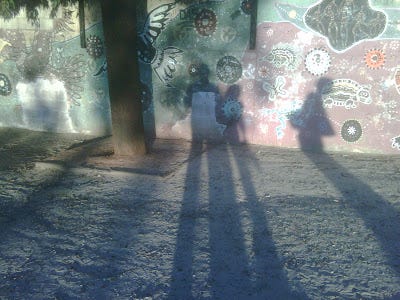
And so, so far away, desire and destiny mixed with blood and snot, add liberal doses of alcohol. He had always sought oblivion, there in the wee hours, there in the dawn. As an observer, sent here to document the days before him, he had a sacred duty to stay, to watch, the record. Everything was so intensely fascinating, he could not bare to drag himself off the bar stool, resenting even the time it took to go to the loo, dragged away from the fascinating seen in front of him. No one had ever expected him to live, dragging him out of pools, off streets. Picking up that hopeless bundle. It might have been cute when he was young, it was simply pathetic when old. The pathos did not stick. Tragedy needed a good looking player. I can't believe it, I'm shocked, the ex said, giving him a fumbling and unexpected peck on his 57th birthday.
"I never had any intentions of living past 30," was the way he put it. But the lust for oblivion was deeper than that, more tragic, more desperate. "As a teenager I used to get bottles of grog and drink them until I was unconscious," he would glibly say, glossing over a decade of agonia and hysteria, tears and triumphs. But this day, the day that he remembered, he had just turned 16, he had begun drinking early. It was hard to get into the bars, 18 being the drinking age, and the only bar where a kid of his age was welcome was The Rex, where they were used as attractors, bait, for the old queens who frequented the place. Young, rough trade, that's what they liked. He drowned himself, completely drowned himself, in whisky, and even now the smell of it would bring flooding back the crawling hands, the hotel rooms, the views, their panting breaths.
This day, the day that he remembered, he had walked from his tiny $6 a week room next to the incinerator at Allen's Private Hotel in Kirribilli, past the old drunks who lived up under the alcove at the southern end, their drunken laughter, the sound of smashing bottles, scaring him every time he walked past. He'd had acquired a bottle, in later years a bottle of Black Douglas shisky had been the drink of choice for drunken excess, but at 16 he had no idea and bought cheap brandy when he could; and, of course, pills from the chemist. He had begun drinking early; and by 5pm he was in virutal blackout, stumbling towards Circular Quay, where Sydney's picturesque ferries came and went all day, ferrying the suburban masses, the north shore business people, the reams of office workers. He didn't care if he didn't live, he was beyond hope, certainly beyond human help.
He passed out in the gutter, right there at Circular Quay, with thousands of officer workers dashing for their ferries. They were stepping over him; and he could remember the mist as he looked up to see the tromping forces, the straight people, the office workers, the cruel indifference of the human form, the cruel indifference of the rich, he looked up to see their tramping faces; and began to cry. A middle aged queen, well to him anyone over 20 seemed old, stopped to ask him if he was alright. He mumbled incoherently; he didn't know, but he needed help and queens were always ready to help. He didn't remember how he got there, but his next memory was of showering in the queens apartment, submitting for the obligatory blow job, pulling on a clean he had leant him, and accepting $20. He would have done it for $5. He remembered the awkward moment, when he made it clear that he appreciated the show but if he wanted anything physical the queen had to pay for it. He remembered slipping the red $20 note into his pockets. He remembered looking down at yet another person working away; and he cared so little, he cared not at all, and wondered as the man puffed and groaned and squirmed, how quickly he could get out of here, how quickly he could get to a bottle shop, how quickly he could get back into unconsciousness, how quickly he could drown every last feeling, every last thought, how quickly he could die.
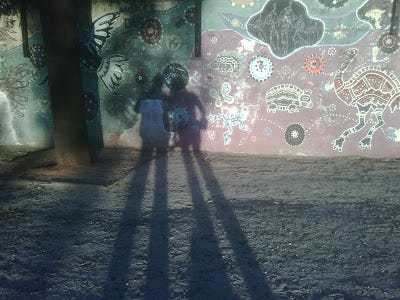
THE BIGGER STORY:
http://www.news.com.au/story/0,27574,25669112-5007146,00.html
IT IS now crash or crash through for Kevin Rudd and Malcolm Turnbull as the controversy over car finance and car dealer mates gathers momentum.
The Prime Minister cannot step back from his insistence he has not done special favours for dealer John Grant; the Opposition Leader cannot retreat from his charge Mr Rudd gave "favourable treatment".
Treasurer Wayne Swan has been drawn into this complicated affair and will continue to be pressed on why emails - supplied by the Government - seem to show him taking a personal interest in Grant's case.
But this is primarily a contest between Rudd and Turnbull, a high speed game of chicken with little room for Swan - or for Grant and public servant Godwin Grech.
And one way or another, it was always going to happen.
The election of Malcolm Turnbull as leader of the Liberal Party brought a stark and significant change to the Opposition's broad strategy under predecessor Brendan Nelson.
It became the hunting party, on the alert for lame ministers and backbench stragglers to attack.
There was a clear boost to the aggression and direction of offensives, as seen in Senate estimates proceedings.
That matched Turnbull's style, which was to debate the policy but not neglect the individuals. And it wasn't just him.
Deputy Liberal leader Julie Bishop gave her troops an apt history lesson at the start of the week in which brought the June 4 resignation of Joel Fitzgibbon as defence minister.
http://www.news.com.au/heraldsun/story/0,21985,25668680-661,00.html
TREASURER Wayne Swan and Opposition Leader Malcolm Turnbull will both face heated demands to resign in a Ute-gate showdown in Parliament today.
The Opposition yesterday warned it would demand Mr Swan answer accusations he gave special attention to a friend of Mr Rudd's, Queensland car dealer John Grant.
Mr Turnbull said the Treasurer had "used the influence of the Government to seek a financial advantage for a crony and benefactor of the Prime Minister".
But Mr Rudd fired back yesterday that Mr Turnbull had the "clock ticking" on him to produce proof of his claim that pressure was exerted on Treasury officials to help Mr Grant, a neighbour of the PM who has given him a ute to use as a mobile office.
Mr Rudd said Mr Turnbull had to produce the alleged email - purportedly written in February by a Rudd adviser to Treasury official Godwin Grech - seeking finance for John Grant Motors.
"(If) Mr Turnbull fails to produce this email for authentication, he has no alternative but to stand in the Parliament, apologise, and to resign," Mr Rudd said.
After claiming he had seen contents of the alleged email over recent days, Mr Turnbull yesterday described it as "contentious". "We do not have a copy of the email. We have never stated we have a copy of the email," he said.
http://www.theaustralian.news.com.au/story/0,25197,25669046-5013871,00.html
DID John Grant, the Ipswich car dealer who provides the Prime Minister with a ute, get special treatment from the Rudd government?
To an outsider, the email trail back and forth from Wayne Swan's office to Treasury official Godwin Grech suggests he did.
Mr Grech, who says he was told Mr Grant was an associate of the Prime Minister's and that he believed him to be "not your average constituent", replied to the first email regarding Mr Grant from the Treasurer's office within half an hour, saying he had already spoken with Mr Grant, had suggested some financing options, and had undertaken to speak to him again the following week.
A few hours later, at 7.27pm on a Friday, Mr Swan's departmental liaison officer, Andrew Thomas, sent the Treasurer a fax at home, saying that both he and Mr Grech had spoken to Mr Grant and set out the alternative financing possibilities for Mr Grant in detail.
The following Monday, at 8.23pm, Mr Grech, who had been at a pre-arranged meeting with Ford Credit in Melbourne that day, emailed Mr Swan, four members of his staff, Treasury chief Ken Henry and three other Treasury officials, saying that he had raised Mr Grant's case and Ford had promised to "actively look" at taking on Mr Grant, that he had received a call from Mr Grant, who was in Auckland, to say Ford Credit had already been in contact with him on that day and that Mr Grant had "seemed pleased".
That Friday, Mr Grech again emailed the Treasurer, Treasury head and the senior officials to say Mr Grant had met Ford Credit and that Mr Grech had told Mr Grant to "keep in touch and let me know if Ford show concerns or resistance".
"I will not speak with Ford again on this unless it is absolutely necessary to push it through," Mr Grech wrote.
